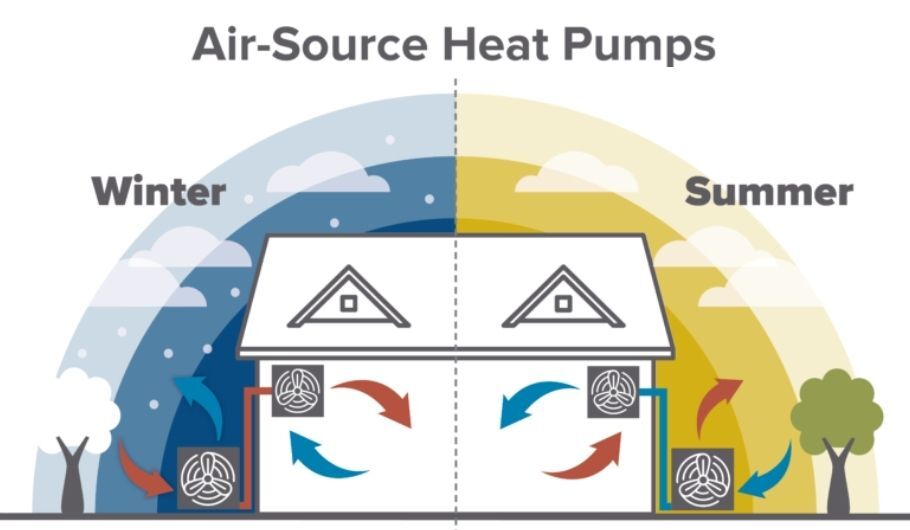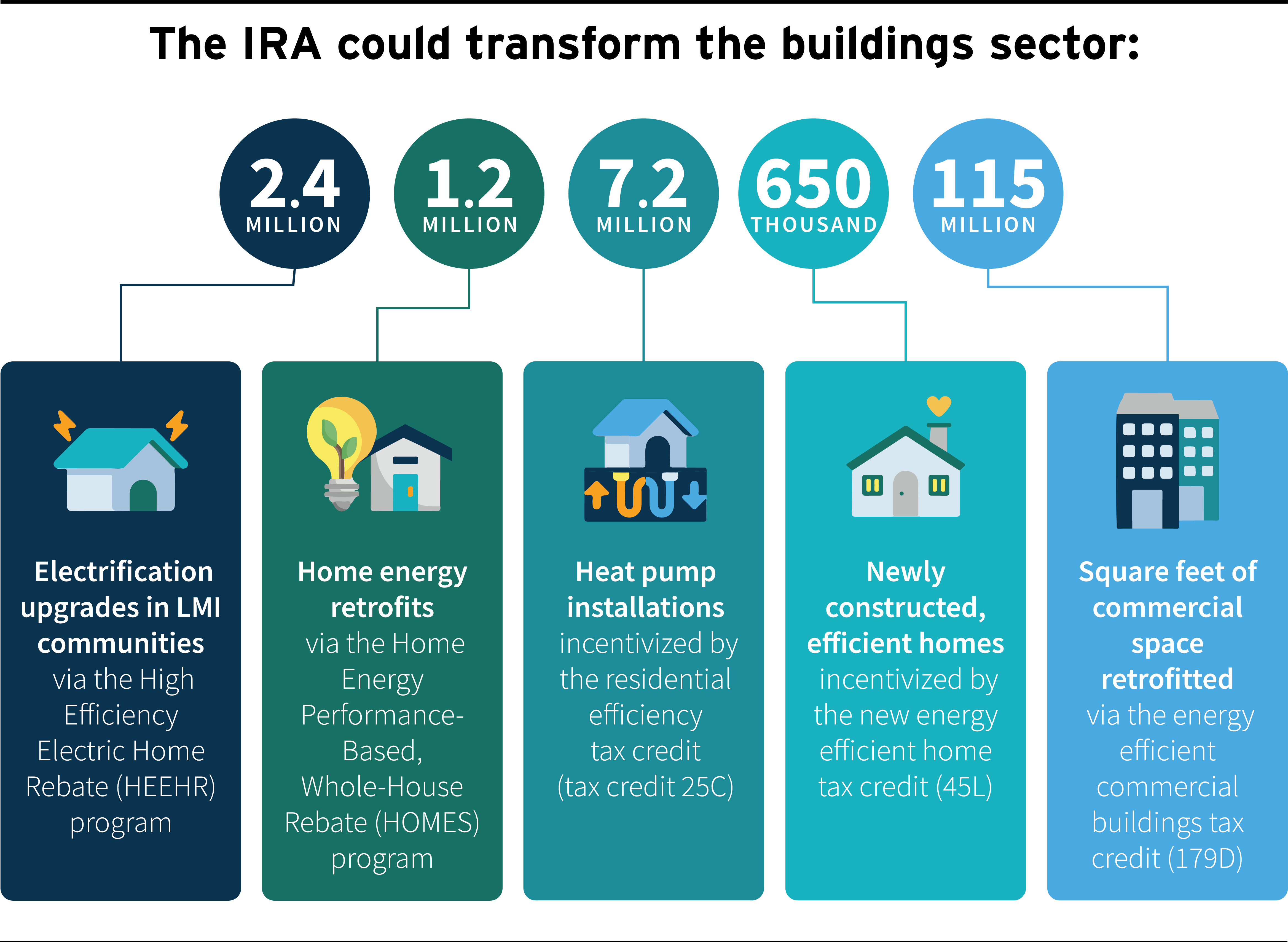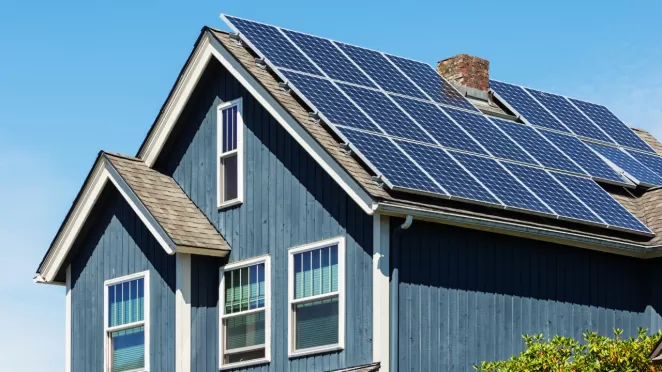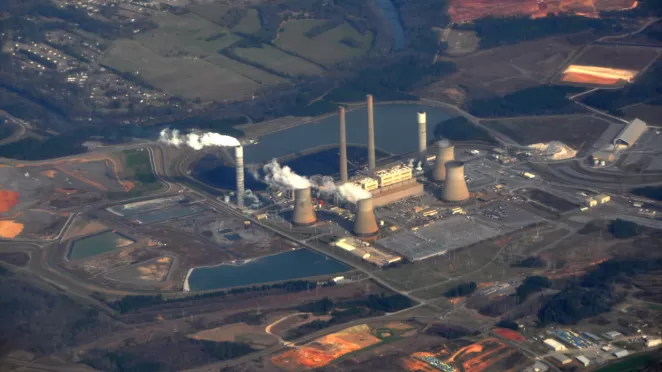
For Chuckanut Builders—a small business in Bellingham, Washington that does home upgrades to improve energy efficiency— their successful business model was born out of strong purpose and value. The company saw an acute need for builders focused on high quality, high performance buildings that could provide resilience and durability in the face of the region’s increasing extreme weather realities. In the northernmost part of the Pacific Northwest, Bellingham is grappling with more frequent climate-fueled fires and their aftermath, including health-damaging smoke that’s harming the community’s air quality and even seeping into homes.
“While not everybody is environmentally-motivated and trying to get gas out of their home for the sake of the climate, people do care that these decisions impact their health and their children's health.” - Jenny Rae, Comms Director for Chuckanut Builders.
Chuckanut Builders are part of a growing network of companies, schools, towns, cities, and states working on one of the most important climate mitigation and adaptation strategies: building electrification and energy efficiency. With the built environment contributing to nearly a third of domestic greenhouse gas emissions, strong policies to support a shift toward efficient and electrified buildings could help the United States avoid the worst impacts of climate disruption. On top of that, the effort could lower energy costs, improve public health outcomes, and increase the long-term durability of our infrastructure.
In fact, in the same place Chuckanut operates, Washington state’s next policy decisions could set a trend for the rest of the country to follow.
With a vote expected by December 1st this year, Washington state will choose whether or not to upgrade its residential building codes to:
- require heat pumps for new home space and water heating,
- implement stronger standards to prevent air leakage and improve home insulation,
- and improve ventilation requirements for gas stoves.
Clean Energy 101: Heat Pumps
Read the full article here
Leveling Up: Washington's Leadership on Common Sense Climate Solutions
Passing these residential code upgrades would follow strong action taken by the state already on commercial buildings. This spring, Washington voted to require that the construction of new commercial buildings include high-efficiency electric heat pumps for space heating and cooling. The state also required that half of the water heating for new commercial buildings come from highly efficient heat pump water heaters.
Experts say that heat pumps are one of the most climate-smart and cost-effective technologies on the market. They operate by simply taking the warmth of outside air, filtering it and pumping it inside to heat homes, and How heat pumps heat and cool buildingsdoing the reverse process to cool homes in the summer.

According to an analysis from RMI, a vote in favor of requiring residential heat pump proposals would cut more than 7.4 million tons of carbon dioxide by 2050, or the equivalent to the annual emissions of 1.6 million cars. This is in addition to the emissions savings that will come from the already-passed commercial building heat pump proposal, which will cut more than 6.5 million tons of carbon dioxide by 2050, or the equivalent to the annual emissions of 1.4 million cars.
Overall, this code update would round out the state’s climate leadership— making Washington state an example for the rest of the country to follow.
“The proposed residential code updates ensure new homes are built right from the start, and the benefits of clean energy technologies are more accessible,” said Rachel Koller, Managing Director at Shift Zero, a coalition of over 45 green building, energy efficiency, and climate action organizations that advocates for zero-carbon buildings in the state of Washington.
"From an economic, equity, and sustainability perspective, it makes sense to build efficient, electric homes using heat pump systems.” - Rachel Koller
Why Buildings? The extensive benefits of electrification in the places we live and work
New analysis from the World Resources Institute (WRI) confirms that the benefits of electrifying and weatherizing homes and buildings are vast and significant, as Koller notes.
Efficiency upgrades like electric heat pumps can better circulate air and purify it more effectively than traditional heating, ventilation, and air conditioning (HVAC) systems. Ultimately, heat pumps prevent the release of harmful gasses like sulfur dioxide— which damage our respiratory system, particularly lung function, and cause severe eye irritation. And appliance upgrades, like switching from gas to induction stoves, have been noted to reduce the risk of children experiencing asthma symptoms by at least 42 percent.
Why Gas Stoves Are More Hazardous Than We’ve Been Led to Believe
Read the full article here
On top of the health benefits, building electrification and weatherization upgrades like those carried out by Chuckanut can yield significant savings on energy costs for American households. Even basic home energy efficiency upgrades like insulation improvements can reduce household utility bills by 25 percent per payment cycle.
For people considering new builds, RMI analysis shows that the upfront construction costs of new code compliant all-electric single-family homes are already $7,250 cheaper than homes built with fossil-fuel-powered systems.
Local Locomotive: The importance of strong state policies to support electrification
But achieving those public health improvements and cost savings requires strong policies to support the adoption of electrification and efficiency measures.
And even in places where this work has happened, the benefits have been limited to higher income communities. Without incentives and rebates, appliances like induction stoves and heat pumps often have too high of upfront costs for middle and low-income households.
“The benefits of retrofitted and electrified buildings need to be prioritized in low income and communities of color that are disproportionately impacted by fossil fuel pollution,” said Jesse Piedfort, director of the Sierra Club’s Washington state chapter. “These communities should be the first to enjoy the indoor air quality benefits of new electric appliances given the inequitable history.”
Hope in the Age of the Inflation Reduction Act
Fortunately, recently-signed federal policy will help make home and building electrification efforts more accessible and economical across the country.
A new RMI guidebook shows the tens of new incentives available from the Inflation Reduction Act (IRA) for states to advance building weatherization, efficiency and electrification. In total, the IRA sets aside $25 billion for tax credits, rebates and other incentives for building upgrades, with many of the pots of funding specifically targeted toward lower income communities. This includes the High-Efficiency Electric Home Rebate (HEEHR) Program that covers project costs for new electric systems and appliances and the Home Energy Performance-Based, Whole-House Rebate (HOMES) program that covers entire home energy efficiency upgrades.

However, additional funding will be needed to subsidize the full cost of heat pumps for low-income households in the state, given they are facing the highest levels of air pollution. Washington policymakers could make the IRA investments stronger by allocating additional capital to fully cover the cost of home electrification where it’s needed most.
Washington State Can Lead By Example
By taking advantage of historic levels of federal funding and choosing to update its residential building code, Washington could take one of the strongest, most economically-strategic actions to tackle climate change. The state could support its small businesses like Chuckanut, improve air quality, save its residents money and increase its resilience in the face of extreme weather.
“With strong federal policies to support electrification and energy efficiency, there has never been a more opportune time for Washington to pioneer this work,” said Jasmine Chiu, Senior Associate at RMI.
“After passage of the Inflation Reduction Act, all eyes are on the local level. The decisions states, cities, towns, businesses and other NGOs make in the next few years are critical and will have ripple effects across the entire country.”
Take Action
Live in Washington? Tell state regulators by Oct 14 to adopt strong home building codes that will fight climate change, save residents money and improve health.
Sign up for our America Is All In buildings campaign updates to hear more about this work happening across the country.

Latest
More articles >
